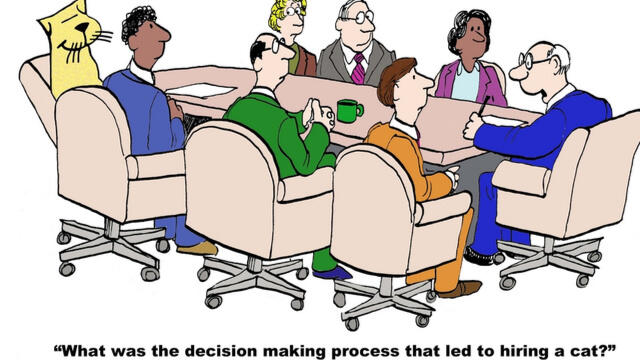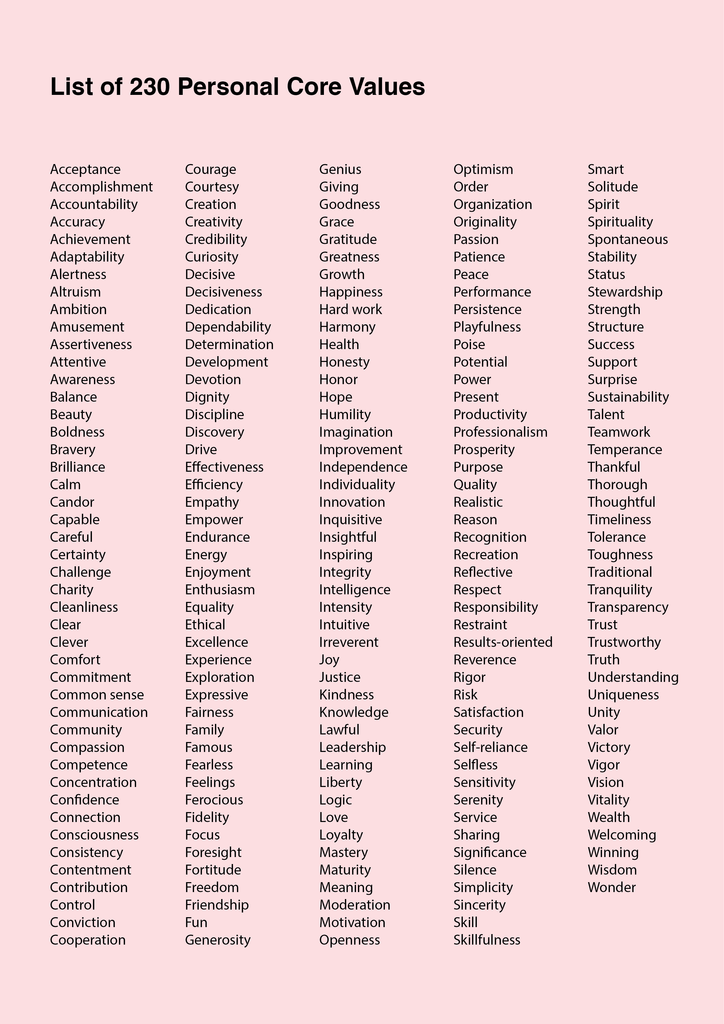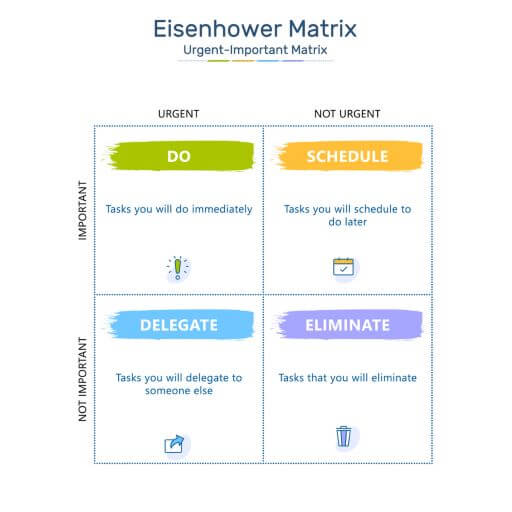
October 13, 2021
What do you do when you have multiple “To do” lists or your “To do” list has a “to do list?’ Do you get laser focused and start at the top? Do you put it away? Do you do the most important thing first or do you do the one that takes the least amount of time first?
What criteria do you use to make decisions at work? What about, at home with your family? What about with your friends? Hang on… your head may begin to hurt in a little while. What criteria or values do we use to make decisions? What about our intuition and gut instinct?
The average adult makes about 35,000 decisions every day or so we are led to believe. I don’t think there have been any studies on that but the point is…we make a lot of decisions every day and we get tired. I did find one study that was documented by Cornell University that we make about 226 decisions every day about food. The biggest decision about food is where to go eat. Talk about back and forth.
At first I was just going to help pare down the number of decisions made per day, but, no, it always gets more complicated. I did find some information to make it easier on you to make decisions. Think about what is going on inside your mind when you are thinking about a decision that needs to be made. What are all the parameters or guidelines must you deal with? How do you decide what is the most important decision to make, right now? Hell, how many decisions do you have to consciously make on this one problem?
Habits are good for us. They help us to save brain function energy. How many things do you do on automatic? What have you put into your morning routine? You no longer have to think about it, you just do it. It does not use your brain energy. By the way, you only have so much focused brain energy per day. I believe it is about 3 hours. Remember when you were learning to ride a bicycle? You had to listen to instructions, process them in your mind, think about each and every step, in order, to pedal and keep your balance. After crashing a few times, you learned to keep peddling and turn before you went off the side of the road and down the bank. You kept practicing and you kept getting better and better. Soon, you could jump on that bike and ride for hours. You got to the point that you just knew what to do and how to do it. You no longer had to concentrate, think, remember and do the steps in order.
Driving to work. It took a while, but you learned the route. Uh oh, the road you usually use is blocked off. Now what are you going to do? Some of you are going to cuss. Some of you are going to use the alternate route that you already know, because, you know that you need to know 3 different ways to get somewhere. Others are going to have to use their phones or other travel route providers. How tight does your jaw get when you don’t know where you are and you are not sure that you can find your building going the back roads. How much time and brain energy does that one little mess up cause you? Probably about 20 minutes plus a cortisol dump that you will have to contend with and calm down from in order to actually focus at work. That is probably another 30 to 40 minutes. You cannot think rationally right after a cortisol dump, it is physiologically impossible. Now you are down to 2 hours of focused energy for the day. Hmm.
It is always the “new things” that pop up that cause the problems. The new things to learn that take time, effort and a lot of energy. We look for ways to decrease our energy expenditure and having habits or routines help us out with that. Issues to decide upon that we have never had to think about before. Those issues take time, effort and energy. Don’t forget about everything else that is running round in your mind that you “need” to deal with too. If you can compartmentalize, maybe you can give yourself enough of a break that you can deal with one situation at a time. There again, how do you decide what to tackle first out of that list of 10 things to be done?
What is important to you? What are your core values? The principles that you use to live your life. Your own judgement of what is important in your own life. Do you have a standard of behavior that you expect out of yourself? What would your life look like and how much easier would your decision making be if you truly searched for your personal core values and used them in your decision making? You could make better decisions and save brain energy. Win-win!
How do you find what your core values are? It is a process and you will be glad that you did the process. Once you know your 10 core values you will always be able to make easier decisions that line up with your belief system. When you make decisions that line up with your belief system you feel more at ease, more comfortable and even relaxed.
How to Identify Your Values – Ask yourself the following questions
- When were the times that you were the happiest?
- What makes me happy?
What is the common theme or thread behind the last three positive decisions you made? What gives you true happiness in your life? What were you doing?
- What makes me feel proud?
Why were you proud? An achievement, met a goal, exceeded expectations
- What have I done that makes me feel happy and satisfied with the outcome?
A personal success usually relates to making a good decision. Maybe your decision provided great results for someone else.
- When was the last time that I felt fulfilled or complete?
When you satisfy your values, a sense of fulfillment or a feeling of completeness usually follows.
- From the list below or from your own list, choose your top 10 values, in no particular order. Then you are going place them in order of importance and maybe even get rid of a few. Sometimes we do have situational ethics, (an “it depends” kind of issue) and there are some things that are deal breakers. You may find you have two or three absolutes or maybe five or six. If you have trouble putting the values in order of importance, look at them two at a time and ask yourself, “If I could satisfy only one of these values, which one would I choose?”

https://thehappinessplanner.com/pages/list-of-core-values
You may find other lists online as well.
It may be hard to narrow down your list, but do so for your own good mental health. Some of the values listed can be placed under an umbrella term also on the list.
What happens if you have conflicting values? Which value is more important to you at this time? What might things look like if you could honor both values?
Your values are formed by your thoughts. You have been thinking, adjusting and growing in your thoughts since you were born. A word of caution, be sure they are your own thoughts and values and not what you have been programmed. We all have unknown biases. We have all grown up accepting things and now that we can think for ourselves, we are supposed to question what we were told or taught and we are supposed to figure out “stuff.”
Are the decisions that you make in line with your own values? When a choice makes you feel uneasy, be still and think about why you are feeling that way. What is you gut telling you? Intuition (gut knowing) is as important as facts and good data information. That is an article for another day.
You want to know what is important to you before a crisis hits. Have you gone against you values or principles before? How did that work out? How did you feel? Prioritize your top 3 most important values.
- Do these values make you feel good about yourself?
- Are you proud of the top 3 values you have chosen?
- Do these values represent things you would support even if it puts you in the minority?
Making a decision may not be easy, but it will be easier.
I like the Eisenhower Matrix (box) to help folks to figure out what is urgent and important. Urgent and unimportant. Not urgent but important. Not urgent and not important. Using this box can make you life easier. I would suggest that you use the box a few times to get used to it and then you will probably be able to do it in your head.

Other tips:
Work from a “To do” list with only 3 things on it. That is all you will have time to focus on anyway.
Consider decision making criteria
- Your purpose
- Your strengths
- Your skills
- Your values
- Your effort and energy required
- Your cost
- Your acceptable risk levels
If you are having a rough time or do not feel well, it is fine to wait on an important decision. My hope for you is that you prepare a plan or make most decisions ahead of a crisis. If you need some help with this, let’s talk and see if I may be of service to you or your loved one.
Pat
865-684-8771


